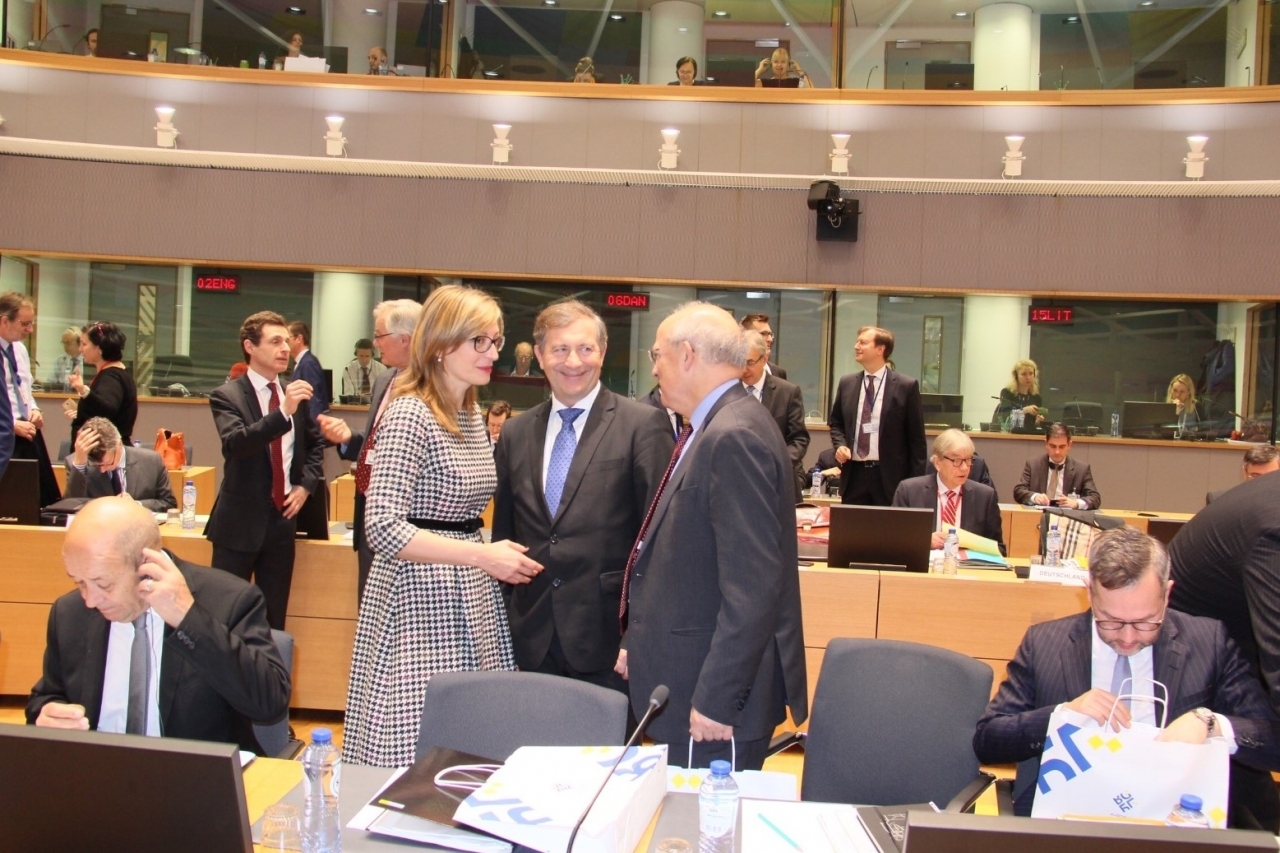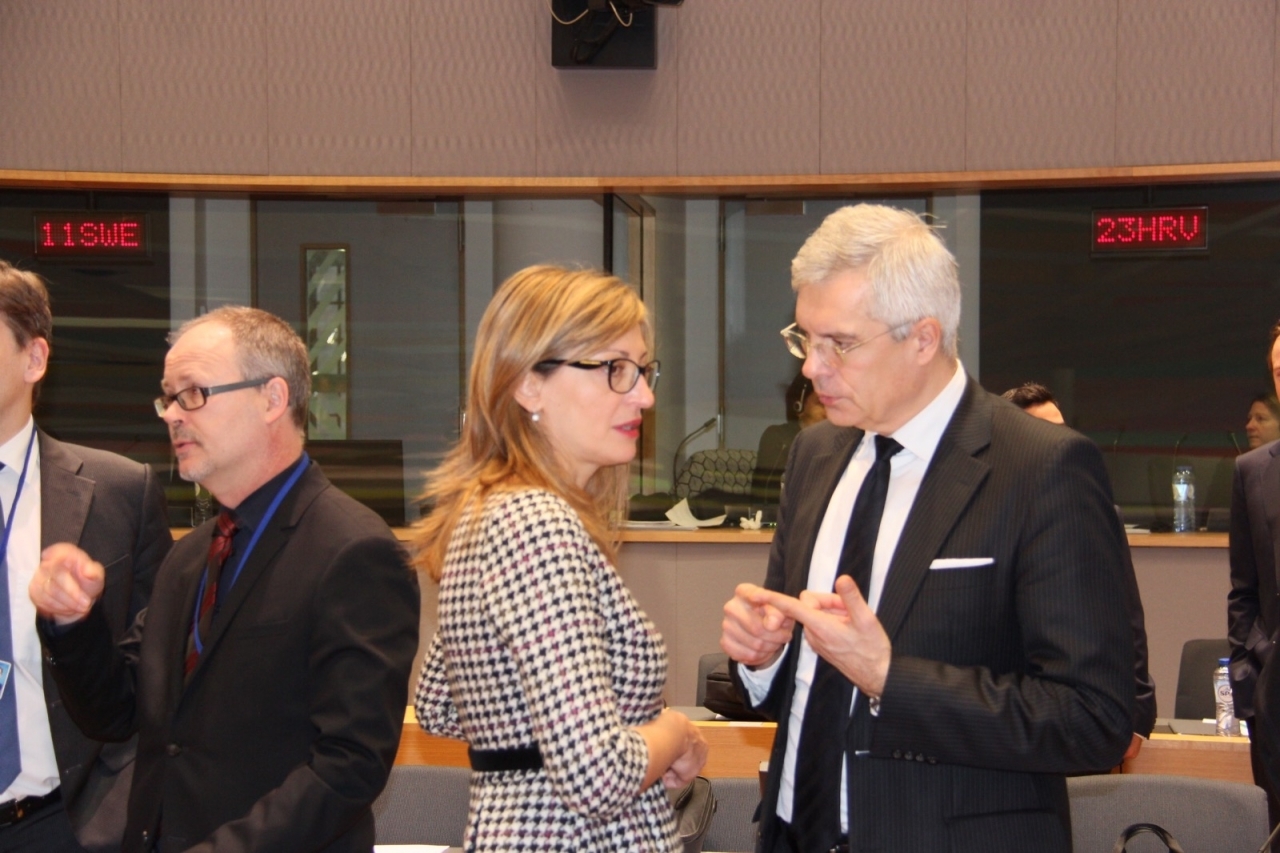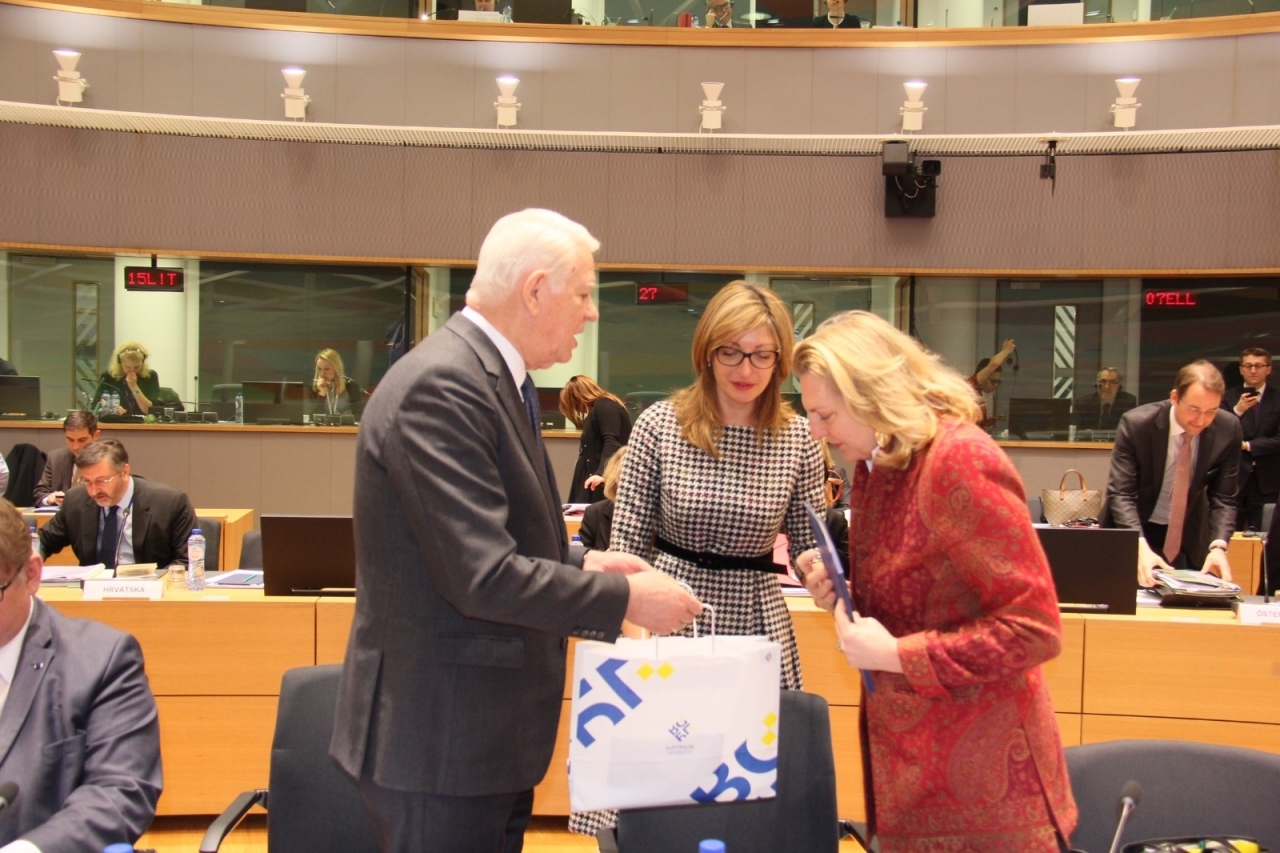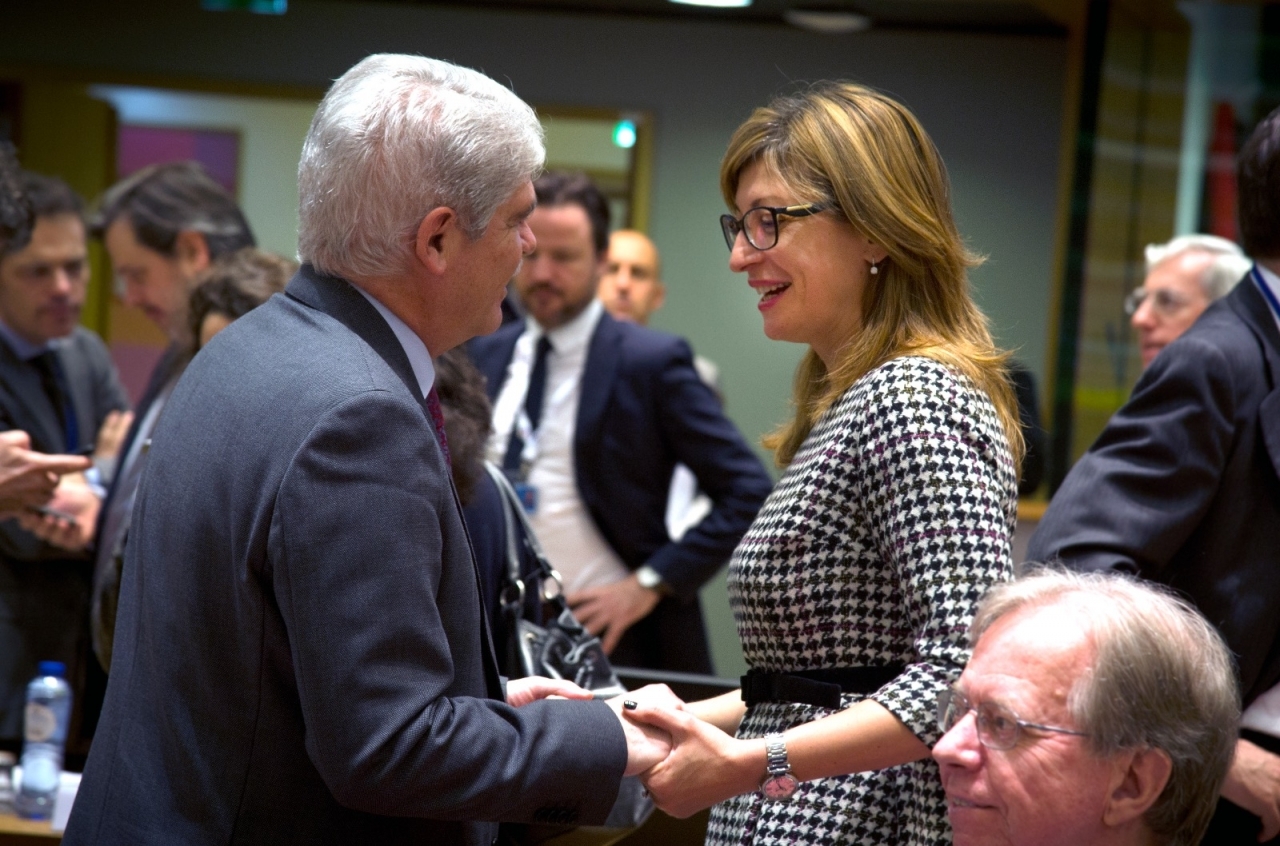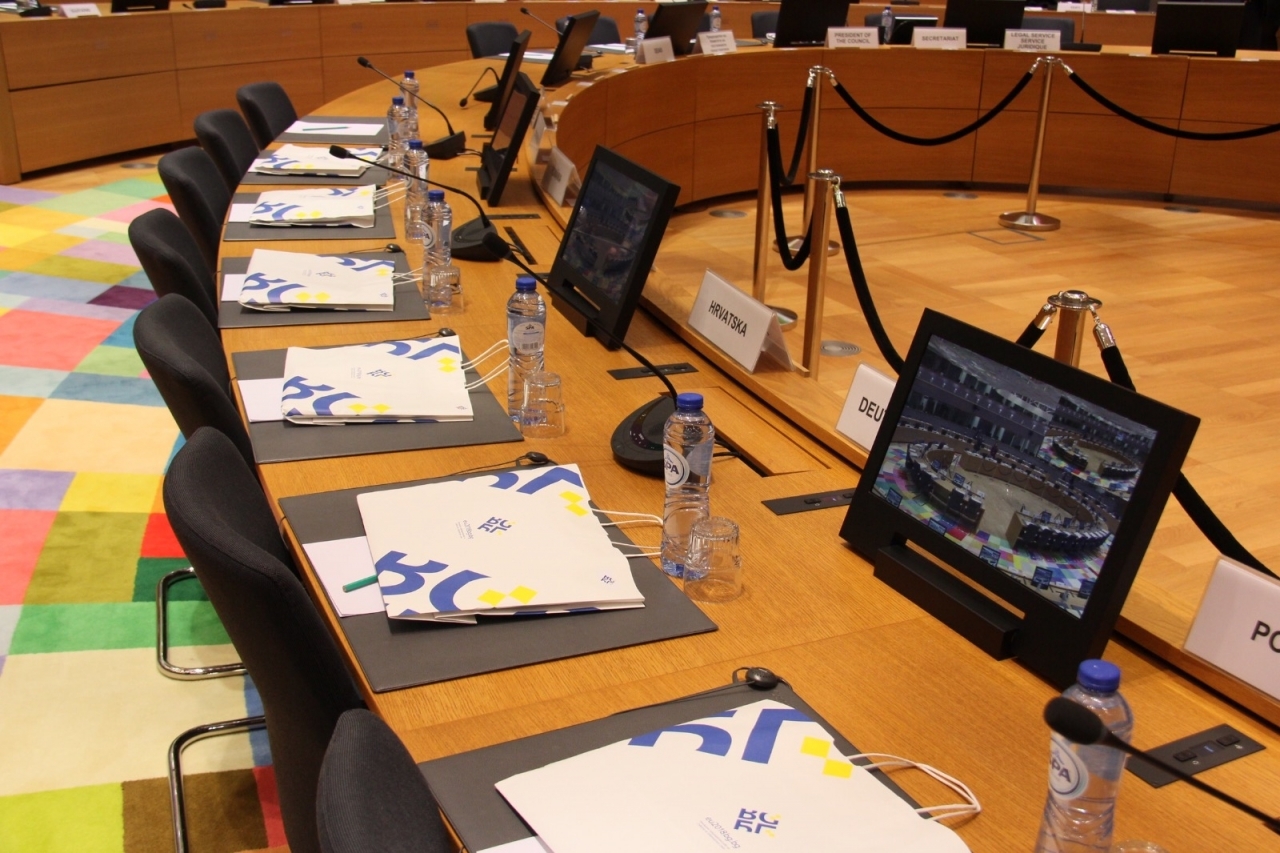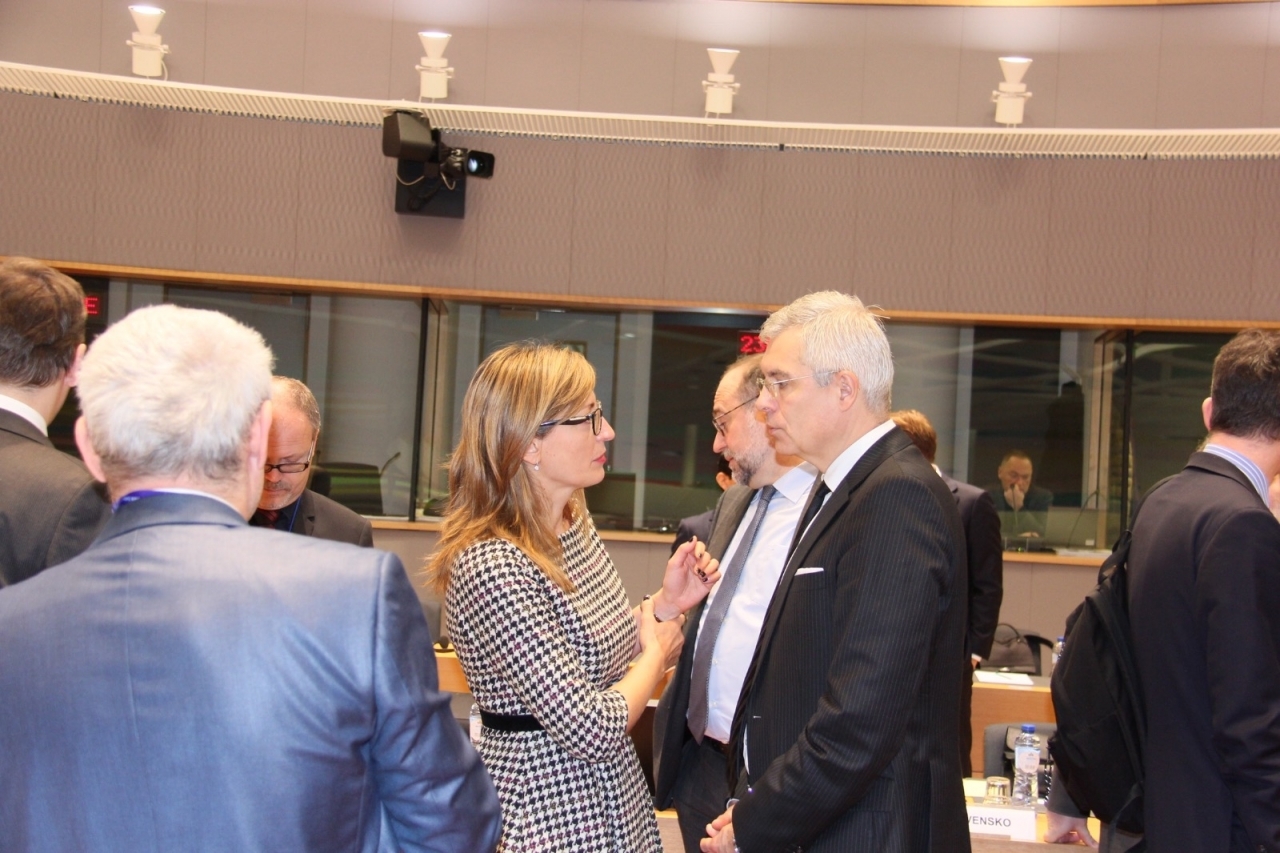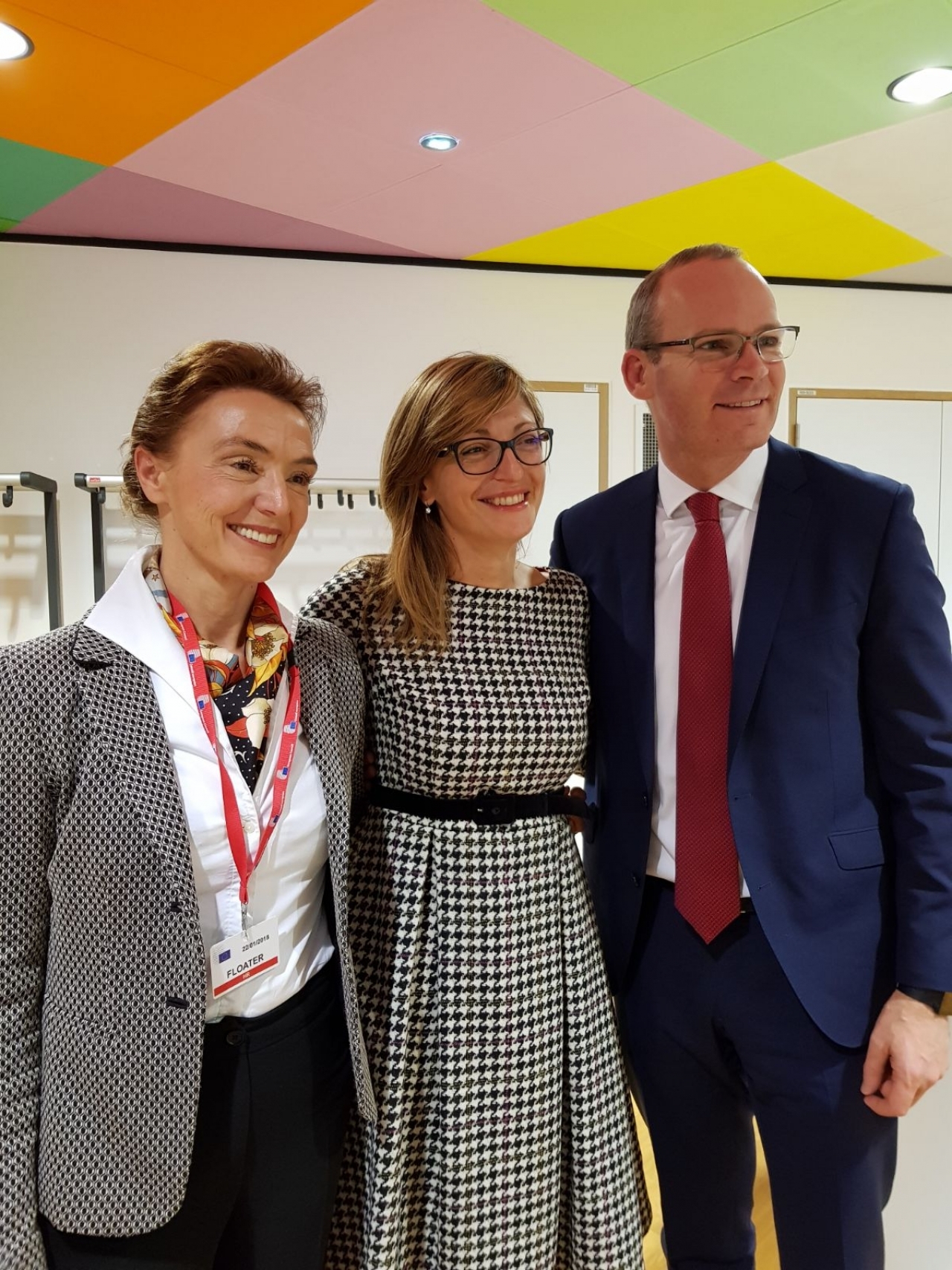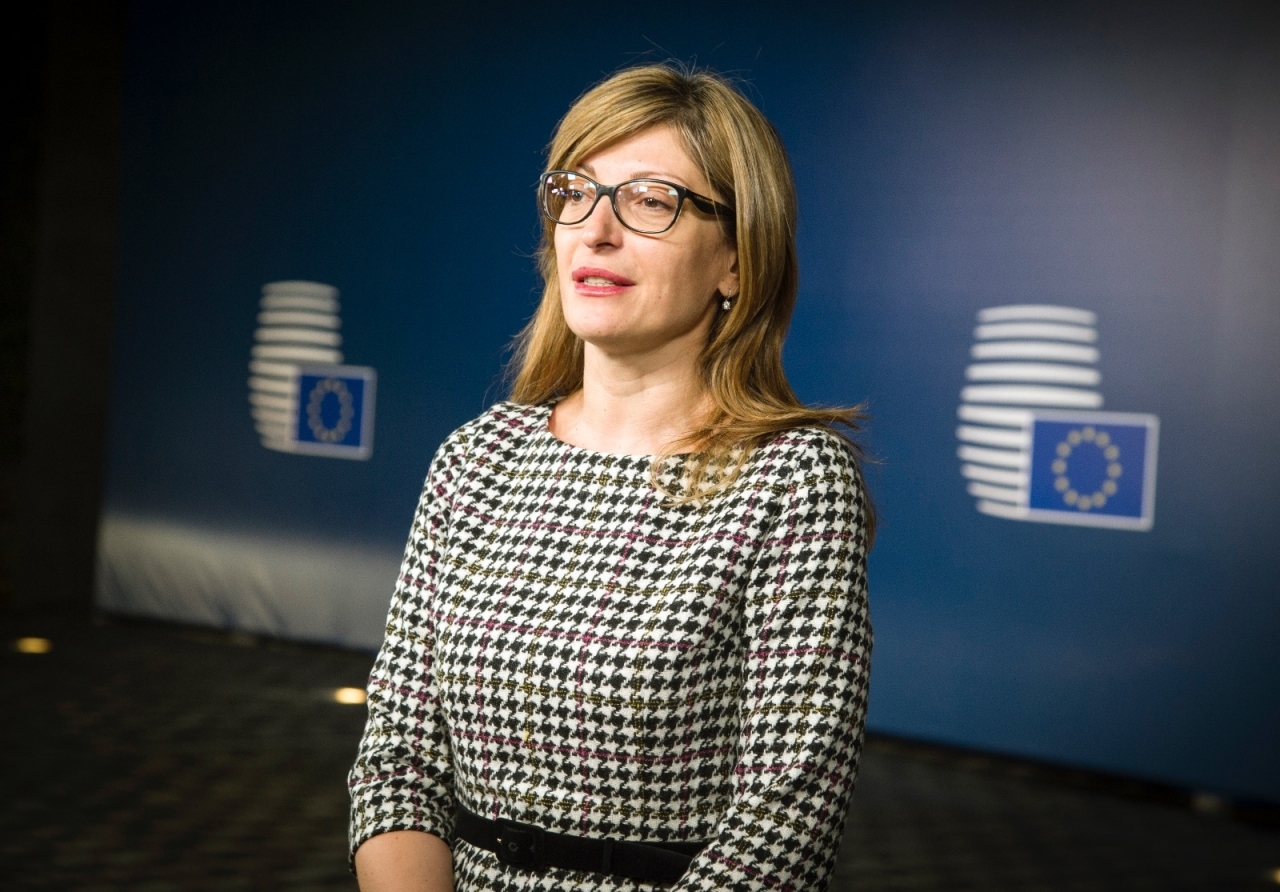EU Foreign Ministers Discuss the State of the Middle East Peace Process
22 January 2018 News
Deputy Prime Minister and Minister of Foreign Affairs Ekaterina Zaharieva took part in the year’s first EU Foreign Affairs Council Meeting in Brussels. The Middle East Peace Process and the EU role in support for its revival topped the agenda of the chief diplomats of the Twenty-Eight.
“We attach paramount importance to a single EU approach to the Middle East Peace Process,” Minister Zaharieva emphasised during the debate. “The EU should play an active part, including in the process of intra-Palestinian reconciliation.”
After a meeting with Israeli Prime Minister Netanyahu within the framework of the December 2017 Foreign Affairs Council, Ministers today had an informal lunch with Palestinian President Mahmoud Abbas. The EU reiterated its position that a two-state solution to the conflict must be sought and that the question about the status of Jerusalem must be settled in direct negotiations between the two sides.
“Our message to President Abbas is that efforts should concentrate on easing tensions and catalysing negotiations,” Zaharieva said.
The Council expressed support for the activity of the United Nations Relief and Works Agency for Palestinian Refugees in the Near East (UNRWA) and will keep up its financial contribution to its operation.
Support was expressed for the efforts of the Quartet for a resumption of the negotiations. The EU conveyed a message urging restraint and non-use of violence, as well as avoiding unilateral acts that can only further complicate the process.
The Council also had an exchange on the development of EU relations with African, Caribbean and Pacific States (ACP) after the expiry of the Cotonou Agreement on 29 February 2020. Post-Cotonou is an issue of great significance for the EU. Negotiations on the framework of the future relations are supposed to open by 1 September 2018.
The Bulgarian Presidency will seek concord a common EU position and will be working consistently for building consensus among Member States. The future agreement will have substantial political, commercial, financial, development-related and other long-term consequences.
The Council adopted conclusions establishing a new EU strategy on Iraq. The document stresses EU support for the unity, sovereignty and territorial integrity of Iraq. A readiness is expressed to contribute to the efforts for Iraq’s stabilisation, reconstruction and economic development, as well as to institution building in that country. The EU plans to establish a migration dialogue with Iraq, through which procedures for the return and readmission of Iraqi migrants are to be developed.
Ministers also held a debate on the situation in Libya and the options for EU backing of the political process in that country. Support was expressed for the work of the UN Secretary General’s Special Representative Ghassan Salamé and the efforts to hold elections in Libya in 2018.
The EU foreign ministers reiterated the Union’s position in support of the implementation of the Joint Comprehensive Plan of Action (JCPOA) on Iran’s nuclear programme.
The Council meeting was preceded by an informal breakfast with European Investment Bank (EIB) President Werner Hoyer, focusing on the establishment of a Development Branch within the EIB to finance development projects in third countries.

